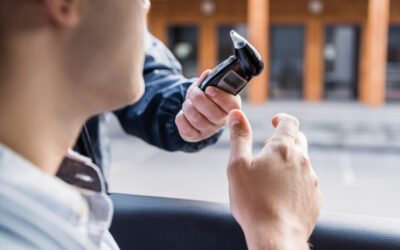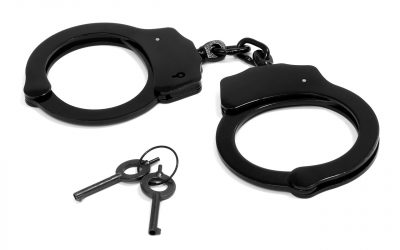Defacing or damaging property that is not your own can lead to charges of vandalism under California Penal Code 594. A variety of destructive acts can lead to vandalism charges. Depending on the damage caused, the person who committed the offense can face arrest for a misdemeanor or felony.
An experienced Los Angeles DUI attorney is your best defense against vandalism charges and will work to have the charges and penalties reduced or dismissed.
Vandalism Explained
According to PC §594, persons who act with malice to deface “with graffiti or other inscribed material” or damage or destroy “real or personal property” that does not belong to them have committed the crime of vandalism. Even if the defacement or damage is temporary, the offender can be charged with vandalism.
Acting with Malice
An act is committed “maliciously” when the offender commits a wrongful act intentionally and with the purpose of bringing harm to someone else. If a person defaces another person’s property accidentally, vandalism charges do not apply under California law.
“Real” and “Personal” Property
“Real” property refers to land and anything on that land, such as a building or house, and “personal” property refers to furniture, a car, a mailbox, or anything else not belonging to the offender.
“Graffiti or Inscribed Material”
Words, figures, drawings, symbols, designs, or any other inscriptions added to another person’s property without authorization are examples of graffiti or inscribed material. Whether written, etched, painted, drawn, or created with another tool, these inscriptions represent criminal acts.
Vandalism Charges for Jointly Owned Property
Suppose spouses share property and one spouse defaces or damages that property. In that case, the offending partner can be charged and convicted for vandalism even though they had shared ownership of the property.
Examples of Vandalism
Most people think of vandalism as spray-painted words or symbols on buildings, street signs, and underpasses. They also often think it is a crime mainly committed by juveniles. While some vandals are juvenile spray painters, many other acts committed by people of any age fit the description of vandalism.
For example:
- Etching initials into wet sidewalk cement
- Smashing mailboxes on a neighborhood street
- Throwing rocks through the front window of a business
- Keying an ex’s car
- Writing a message on a public bathroom wall
- Breaking the windshield of a car you and your spouse both own during a heated argument
Vandalism Charges
In California, the penalties for charges of vandalism depend on the financial value of the damage incurred. When property damage amounts to less than $400, only misdemeanor charges apply. When property damage is $400 or more, the crime falls into the “wobbler” category, meaning prosecutors can issue misdemeanor or felony charges.
If an offender commits several acts of vandalism, each amounting to less than $400 on its own but equalling or exceeding $400 when added together, the prosecution may pursue felony charges.
Penalties for Misdemeanor Vandalism
If convicted of misdemeanor vandalism, offenders can face:
- A sentence of up to one year in county jail
- A fine of up to $1000. The fine can increase to up to $5,000 if offenders have prior PC 594 convictions
- Informal or “summary” probation.
Offenders must uphold all conditions of their probation, which can potentially include, among other options, driver’s license suspension or a delay in eligibility to get a license, counseling, and community service. If offenders are charged with defacing property with graffiti, and the property damage is less than $250, prosecutors may decide to file charges under California’s graffiti laws, PC 640.5 and 640.6. The penalty system for these statutes is less severe, and punishments are affected by the offender’s history of graffiti law convictions.
Penalties for Wobbler Vandalism Offenses
When the damage to vandalized property equals or exceeds $400, the prosecution will consider different factors, such as the offender’s criminal history and the specific circumstances of the crime, to determine whether to issue misdemeanor or felony charges.
If charged with a misdemeanor, offenders face misdemeanor penalty options. The amount of the fine can increase to $10,000 or up to $50,000 if the dollar amount of the property damage totals $10,000 or more.
If charged with a felony, offenders can face:
- Probation and up to a year in county jail
- A 16-month, two-year, or three-year jail sentence
- A $10,000 fine, or a fine of up to $50,000 if property damage equals or exceeds $10,000
Charges for Specific Types of Vandalism
California code has specific statutes of limitation for vandalism committed against specific types of property or performed with specific materials. Acts of vandalism against places of worship bring wobbler chargers, even if property damage amounts to less than $400. If the activity falls into the category of a “hate crime,” meaning the offenders targeted the space to scare or intimidate worshipers for their beliefs, felony charges are automatic.
Wobbler charges also apply to acts of vandalism using caustic chemicals, no matter the dollar amount of the property damage. Misdemeanor convictions for these acts bring up to six months in county jail, while felony convictions bring longer sentences.
Additional statutes exist for acts committed in a cemetery or mortuary or near highways or freeways.
Defenses for Vandalism Charges
California takes a serious approach to punishing acts of vandalism. However, an experienced vandalism attorney will know how to mount a robust defense to have those charges reduced or dismissed altogether. Possible defenses include:
- The defendant damaged or defaced the property in question by accident.
- The defendant is the victim of false accusation or mistaken identity.
- The property damaged was solely owned by the defendant.
- The defendant acted with the property owner’s permission.
Protection for Vandalism Charges
Vandalism convictions bring serious penalties, costing offenders hundreds or thousands of dollars, months or years of freedom, and a criminal record. For the best outcome, defendants should seek representation from a skilled defense lawyer. An experienced Los Angeles DUI attorney is committed to protecting clients’ rights and presenting powerful defenses to mitigate long-term consequences or have charges dismissed completely.






